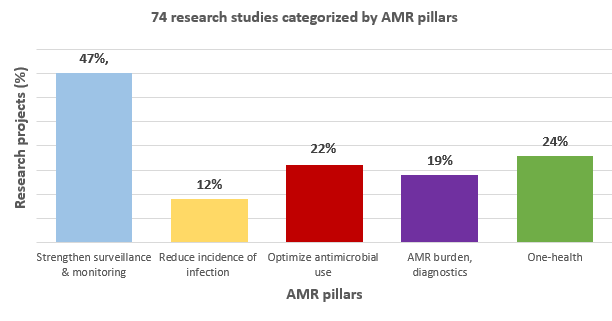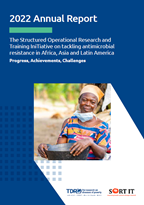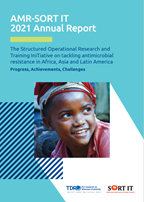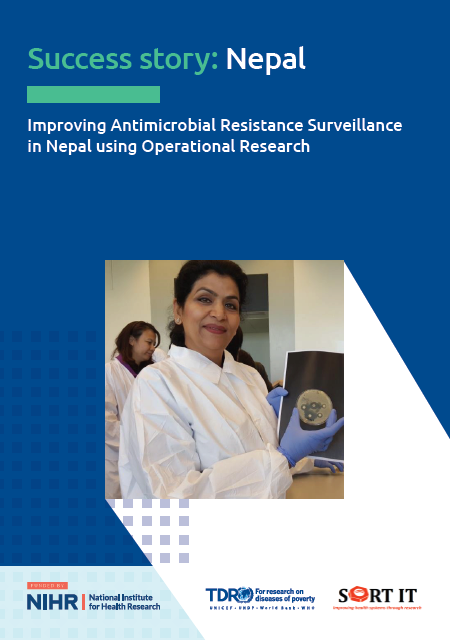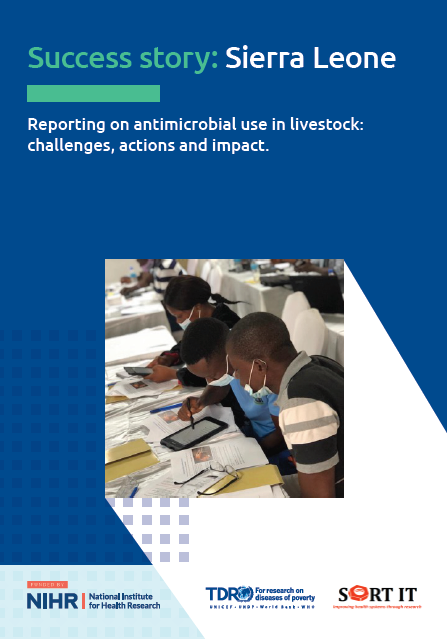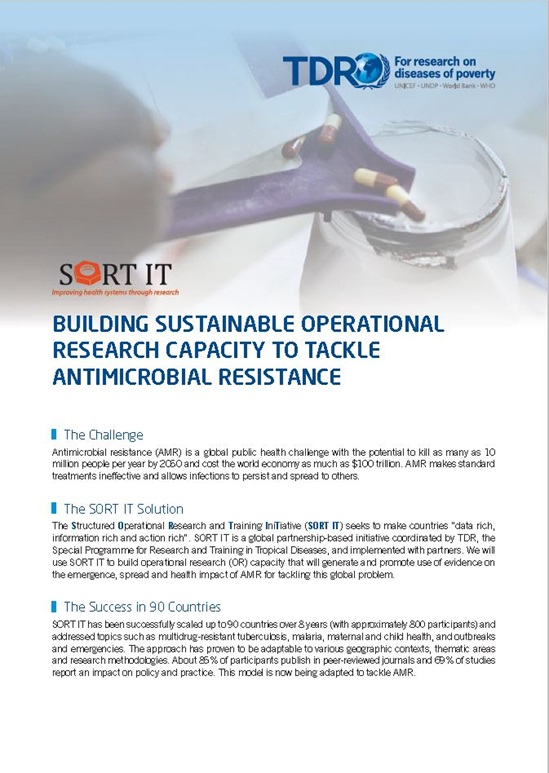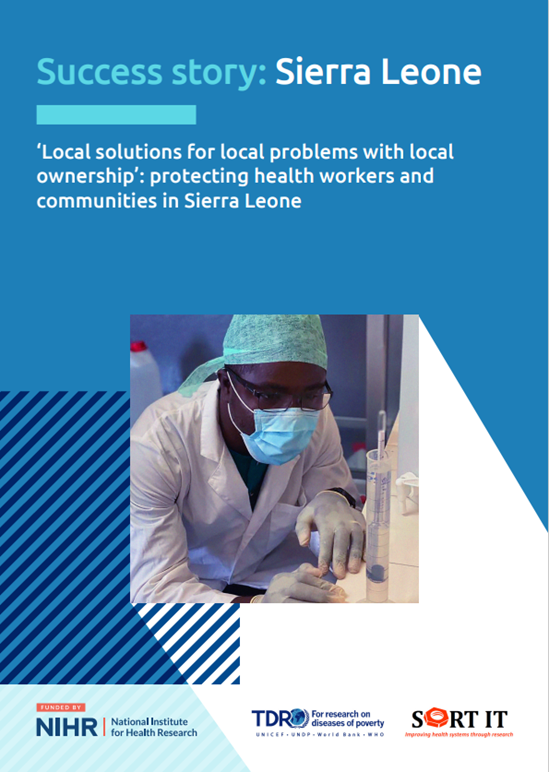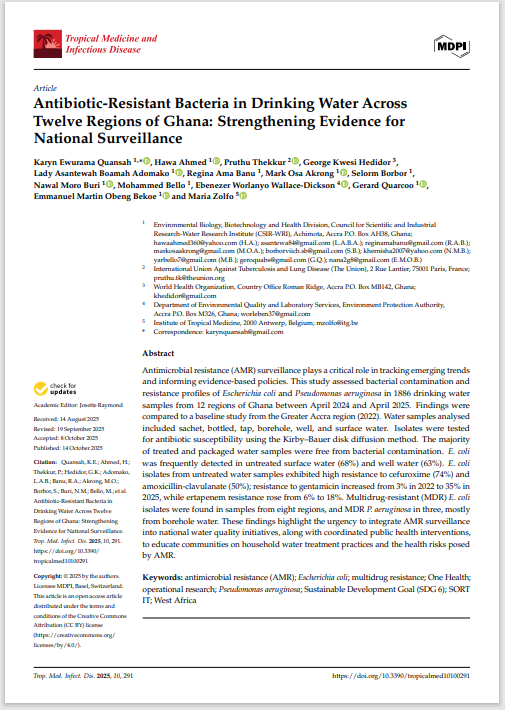This AMR initiative is being implemented in close collaboration with national AMR coordinating committees; WHO regional and country offices in Colombia, Ecuador, Ghana, Myanmar, Nepal, Sierra Leone and Uganda; and a wide network of SORT IT partners.
Impact highlights
Research driving stronger health systems
According to TDR’s annual metrics surveys, 79% of 75 AMR-related studies conducted in Africa (Ghana, Sierra Leone, Uganda), Asia (Nepal, Myanmar), and Latin America (Colombia, Ecuador) have already informed policy or practice. The programme also strengthens leadership in health research and systems more broadly. Among SORT IT trainees:
-92% have applied their skills to AMR challenges
-64% have initiated additional studies
-36% are now mentoring others, helping to build the next generation of operational researchers
More than half of trainees have also applied their skills to outbreak response—including COVID-19 and Mpox—demonstrating the cross-cutting value of SORT IT. Country-level examples from Ghana, Nepal, and Sierra Leone are featured in a special issue of Tropical Medicine and Infectious Disease.
Timely publication of locally driven research
To overcome costs and difficulties on travel and large gatherings, SORT IT developed an online training platform that continues to be used in hybrid formats for training. Manuscripts are typically published within 10–12 weeks of submission, maintaining rigorous peer review while ensuring timely availability of evidence.
The SORT IT programme prioritizes locally generated research, for local solutions, with local ownership, strengthening the relevance of findings for decision-making. Capacity is built through a team approach involving:
- Frontline health workers and programme staff
- SORT IT alumni
- Academic partners
- WHO country office staff
Building skills for research communication and uptake
SORT IT trainees receive ongoing support to strengthen communication skills and promote uptake of their findings. An innovative feature has been the integration of three-minute “lightning videos” alongside abstracts on journal websites - an unprecedented step to enhance dissemination and engagement.
In 2025, a stand-alone Massive Open Online Course (MOOC) was launched to further expand global capacity in research communication.
Expanding global collaboration
The SORT IT network now includes 87 partners across 97 countries, with 80% based in the Global South. Strong collaborations are in place with national AMR committees and WHO regional offices in Africa, Asia, the Eastern Mediterranean, and the Americas.



